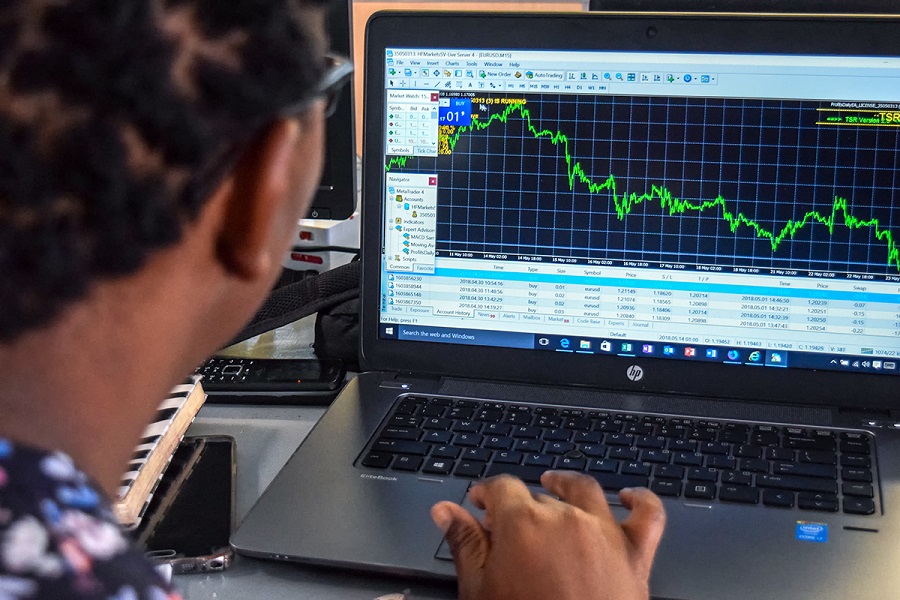In the second part of this article piece, I laid the foundation required for basic understanding of options. In this third part, I will be talking specifically about Calls. Options are a zero-sum game, meaning that what one person wins is what is lost by another. So, I will be looking at it from the point of view of a Call buyer and Call writer or seller.
Recall that a Call option gives the buyer the option to buy the underlying asset at a given price (Strike) on or before the expiration or maturity of the option. Also, recall the explanation of the moneyness of a call option and that of intrinsic and time value. It is only options that are in the money that are advantageous to the buyer.

Exercising an Option
What does it mean to exercise an option? When one talks about exercising an option, it simply means that the buyer of the option, in this case, a Call option, goes to the seller to buy the underlying at the agreed price, no matter the market price.
When to Exercise
Now back to our Access Bank case. Let us say that the price of Access Bank shares increases to N7.25 per share. This means that the intrinsic value of the call option is N7.25 minus N6.75, that is N0.5, but you were required to pay N0.5 as option premium. In this case, you are merely breaking even, and therefore, at this point, you have nothing to gain or lose if you exercise the option or let it expire worthless. So, you can decide to exercise or let it expire ‘worthless”.
[READ MORE: Understanding Derivatives as investment products (1)]
What if Access Bank shares went up to N10.5 per share? Your intrinsic value becomes N10.5 minus N6.75, that is N3.75; now the call option is in the money. You are now paying N0.5 for the opportunity to make N3.75. In that case, you will exercise the option, by going to the seller of the call for one share of Access Bank for which you will pay him N6.75. Then, you take that share to the stock market and sell it for N10.5, making a gain of N3.75 less premium of N0.5 paid upfront, for a final profit of N3.25.
Should I buy the Call or the Stock?
Call option buyers oftentimes are confronted with the question of whether to buy the call or the underlying. I will explain this seeming dilemma by looking at Access Bank again. If the price of Access Bank share had ended up at N5 on the expiration date of the call option, the call would have had no intrinsic value and therefore would have expired worthless, in that case, you lose the N0.5 you paid for the option.
Compare that with a situation where you bought the Access Bank share at the then price of N6.6, instead of buying a call at N0.50, now that the price is N5, you would have lost N1.6 per share on each Access Bank share you bought at N6.6 but with the call option, you only lost N0.50 per call option bought.
That is the beauty of buying a call, it gives you unlimited potential to make gains, but exposes you to loses that are limited to the premium you paid. What do you mean by unlimited potential? What if you had the option, and following another acquisition by Access Bank, the share price rises to N10,000 per share, you will buy it from the option writer at the agreed N6.75 and sell it for N10,000 or whatever the price has risen to.

A look at Call Option from a Seller’s eyes
When you sell a call, you give the buyer the right to buy and you must sell if he comes ready to exercise. Taking the example of Access Bank still, and at a current price of N10.5, the call writer or seller will now sell Access Bank share at N6.75 to the call buyer, instead of selling it in the stock market at the prevailing price of N10.5. In that case, he has lost N3.75 but he received N0.5 premium upfront, leading to a total loss of N3.25 (which was the gain that the buyer made).
If the price of Access Bank share had ended up at N5 on the expiration date, the buyer would not exercise and the seller will keep his shares and still keep the N0.5 premium that the buyer paid upfront. Therefore, with an option, the much the seller can made is limited to the premium but there is no limit to what he can lose.
Again, as an illustration, what if Access Bank shares went up to say N10,000 per share after acquiring another bank. The seller will be forced to sell to the call buyer at N6.75, thereby losing the difference between N10,000 and N6.75 plus the N0.5 premium.
[READ ALSO: Understanding Derivatives as investment products (2)]
When to buy or write a call option
Having known the profit and loss potentials of a call option, when should you buy or sell a call option? The buyer of a call option anticipates and hopes that the price of the underlying will increase beyond the strike price plus the premium, while the writer anticipates and hopes that the price of the underlying will decrease.
So, when you think that the price will rise but you are not quite sure and you want to limit your loss, buy a call. If you think the price will fall and you want to profit from the fall, by keeping your shares and making money off the premium, write or sell a call.
In the next article, I will talk about Naked Calls and the dangers of writing or selling them.























I have invested about two months ago. But I have another cash disposable. Can I reinvest?